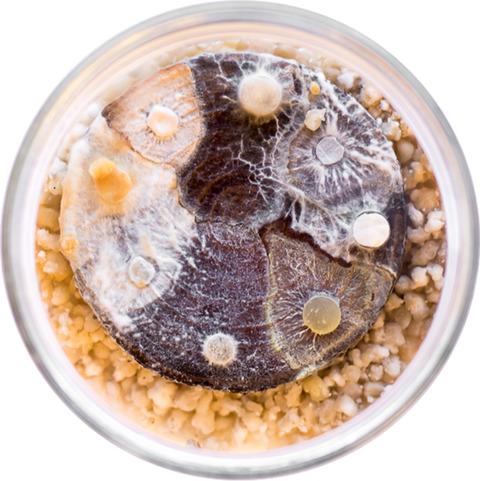Our official English website, www.x-mol.net, welcomes your
feedback! (Note: you will need to create a separate account there.)
Warming effects on wood decomposition depend on fungal assembly history
Journal of Ecology ( IF 5.3 ) Pub Date : 2021-02-10 , DOI: 10.1111/1365-2745.13617 Mattias Edman 1 , Saba Hagos 1 , Fredrik Carlsson 1
中文翻译:

木材分解的变暖效应取决于真菌的聚集史
更新日期:2021-04-08
Journal of Ecology ( IF 5.3 ) Pub Date : 2021-02-10 , DOI: 10.1111/1365-2745.13617 Mattias Edman 1 , Saba Hagos 1 , Fredrik Carlsson 1
Affiliation

|
- Climate warming has the potential to drive changes in fungal community development and dead wood decomposition, but our understanding of this process is obscured by complex interactions between temperature and multiple other factors. A pivotal factor driving decay dynamics is fungal assembly history, yet its response to elevated temperature is poorly understood.
- We investigated the combined effect of warming and assembly history on community composition, respiration and decomposition using experimental communities of wood‐decaying fungi on spruce wood. Assembly histories were assigned to microcosms under normal and elevated temperatures in a factorial design.
- Both temperature and assembly history influenced wood mass loss and respiration. Temperature was the most important factor, but the effects of warming on decomposition varied greatly with fungal assembly history. Depending on which fungal species colonized first, warming of 5°C increased wood mass loss by 7%–57% after 9 months. The large variation in decomposition response to warming resulted from differential responses in the growth of initial colonizers (pre‐inoculated) and their competitive ability, resulting in different decomposer communities.
- Synthesis. Our study demonstrates that temperature and assembly history jointly determine deadwood decomposition and fungal community composition under controlled laboratory conditions. Further investigations are needed to confirm these results under natural conditions. Nevertheless, our findings highlight the importance of considering interactions between priority effects and climate factors to understand forest carbon feedbacks in the context of climate change.
中文翻译:

木材分解的变暖效应取决于真菌的聚集史
- 气候变暖有可能推动真菌群落发展和枯木分解的变化,但是我们对这一过程的理解被温度与多种其他因素之间的复杂相互作用所掩盖。引起真菌衰变动力学的关键因素是真菌的组装历史,但对高温的响应知之甚少。
- 我们使用云杉木材上腐朽真菌的实验群落,研究了变暖和装配史对群落组成,呼吸作用和分解的综合影响。在析因设计中,将装配历史记录分配给常温和高温下的缩影。
- 温度和装配历史都影响木材的质量损失和呼吸作用。温度是最重要的因素,但升温对分解的影响随真菌的组装历史而变化很大。9个月后,温度升高5°C,木材质量损失将增加7%–57%,具体取决于哪种真菌首先进入殖民地。初始定殖器(预接种)的生长及其竞争能力的不同响应导致对变暖的分解反应存在较大差异,从而形成了不同的分解器群落。
- 综合。我们的研究表明,温度和组装历史共同决定了在受控实验室条件下的枯木分解和真菌群落组成。需要进一步的研究以确认在自然条件下的这些结果。然而,我们的发现强调了考虑优先效果和气候因素之间的相互作用以理解气候变化背景下森林碳反馈的重要性。











































 京公网安备 11010802027423号
京公网安备 11010802027423号